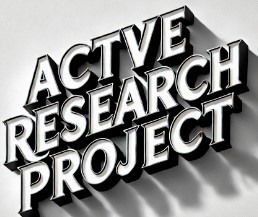The Active Research Project (ARP) works to connect the thousands of graduate and professional students as well as allied academic mentors with grassroots organizations needing research support.
There are 50,000 students receiving a public administration or related policy or social services master’s degree each year. A significant portion of those students are required to do research capstone projects as part of their graduation requirements that could be better serving community interests. In addition, there are also large numbers of researchers pursuing doctoral, legal, and other degrees with a policy-related research component, who are looking for research projects to complete their studies.
Underfunded grassroots groups have vast research needs as they face down well-funded opponents churning out research to push hostile policies, so being able to effectively tap this large pool of academic researchers strengthens their work tremendously.

ARP works to identify the research needs of a wide range of local and some national non-profits needing additional research help, while finding (mostly) graduate student researchers with compatible interests and time frames to meet the needs of those non-profit groups.
This includes compiling a database of NGO organizations and key contacts as well as surveying academic departments with capstone project requirements and building relationships with professors and departmental heads overseeing such programs.
The end product is essentially a matchmaking service to identify student teams who would be willing to work on specific research projects.

ARP works with non-profits, particularly grassroots organizations with little internal research capacity, to shape their research requests into forms that are viable for both the content requirements and time frames of campus researchers.
ARP helps them brainstorm through those research needs and break them into viable research projects with deliverables that can be finished given the timelines and capacity of available academic research teams.
Where NGOs have larger research projects, ARP will work with them to break those projects into parts that can be pursued by multiple researchers or teams. Particularly for NGOs without in-house research staff, ARP can help coordinate the research so that the inputs and outputs of particular research by different teams are compatible and using similar metrics, data sets and parameters for the research pursued.

ARP works with research programs and individual professors overseeing ARP-related research to help train student researchers in creating the deliverables most appropriate to the needs of the advocates they are working with, whether traditional policy reports, slide presentations, policy briefs, and/or one-page information sheets.
Part of this involves encouraging a cultural shift in some academic programs to be willing to evaluate their students output on how well it matches their nonprofit client needs, not just on whether it meets academic criteria.
Once research projects are initiated, ARP will check in periodically with NGO leads and student researchers to ensure there is effective communication for each side as research proceeds. This includes evaluations at the end of each project to identify where communication and training can be improved for more effective projects in the future.
